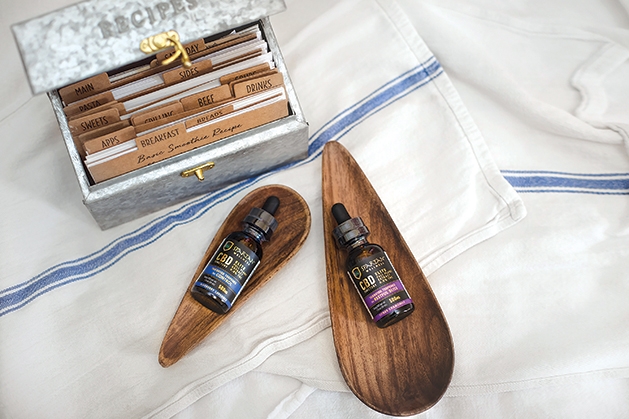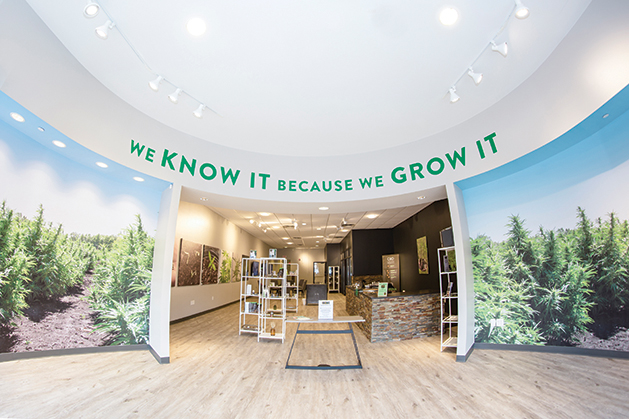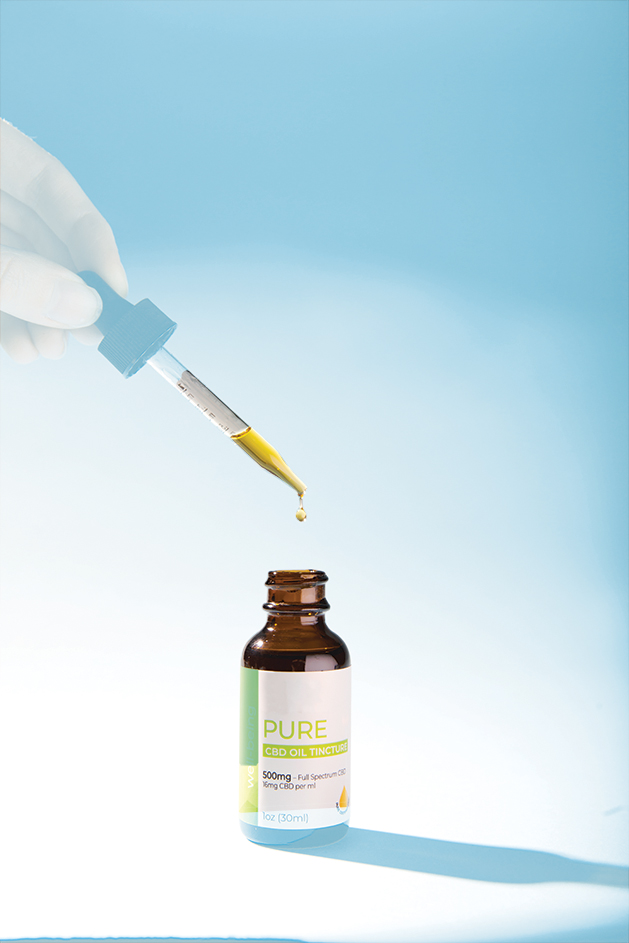
Ever since his start in the field of human physiology some 20-something years ago, Woodbury native David Sutton has been intrigued by the potentials of cannabidiol (CBD) therapy. “[CBD] always intrigued me, but hemp itself was caught up in the illegal conflagration of its cousin plant,” Sutton says. So, while other countries began conducting research unavailable to the U.S., Sutton kept careful tabs of its development.
“On a personal note, I took a chair lift to the spine about two winters ago; fractured a vertebrae,” Sutton says. While he wasn’t paralyzed, the muscles around the fracture began seizing up, making it difficult for him to walk. Due to his prior interest in the field, he was familiar with the first farmers in Minnesota to obtain permits to grow hemp.

After trying some of the CBD products these farmers were developing, including a topical and a tincture, Sutton’s muscles uninflamed and he began to move about more freely. “I always tell people the CBD didn’t heal me; it wasn’t something miraculous in that way,” he says. While his muscles responded how they were supposed to, they had difficulty letting go. With the introduction of CBD, the muscle inflammation reduced so that Sutton’s recovery time became expedited.
While CBD may not be the miraculous cure-all often touted, there’s no doubt it has some intriguing properties and increasingly studied results. To this end, when Sutton set out to create his CBD facility, he and his team decided on an education model to dispense with the snake oil connotation a lot of bad actors helped propagate.
“CBD is a bit of the Wild West, you don’t always know what you’re getting,” Sutton says. “We did a lot of product testing. We tested a couple hundred different products—big companies, small companies—and generally what we found is they lack as much CBD as they claim on the label.” Just as problematic are some of the things included: higher levels of tetrahydrocannabinol (THC) than legally permitted; pesticides; heavy metals.
“We determined we didn’t want to be on the shelf with products in other stores,” Sutton says. Instead, they formulate and manufacture their Spartan CBD product in house. “We processed about 750,000 pounds of hemp last year. And from soil tests to what is on the shelves, we control every step of the process. We have a co-op of farmers in southwest Minnesota, and we also have a 40,000 square foot indoor grow facility so we’re able to control all of our grow needs.”
With so much done in house, customers and visitors also get the opportunity to see the process as well as receive a personalized evaluation. “We have clients of every age, every background. They come in for a variety of reasons,” Sutton says. The reasons are often as wide ranging as the client, with complaints of pain, but also anxiety and sleeplessness. Although CBD isn’t a cure, it can be administered next to other therapies—be sure to contact your doctor before beginning the use of CBD.
Part of the education process is testing the products people have already tried, using the center’s high-pressure liquid chromatography machine to deliver a molecular report. “A lot of people buy [CBD] products online because they think they’re finding a good price. Oftentimes, that gas station CBD product is just perfumed oils,” Sutton says.

Just as often, the center’s tests uncover that the product someone was using didn’t have a high enough CBD content. “We’re able to give clients confidence, both because we can tell them what they’re taking isn’t actually what they think they’re taking, and because we do our own internal testing. Our team will test our products randomly off the shelf to ensure that our formations are consistent and that our process and quality checks are consistent. Fortunately, we come up pretty good,” Sutton says.
Since opening in fall 2019, Sutton says the reception in Woodbury has been phenomenal. “When we had our grand opening, mayor [Anne Burt] came out and members of the city came out,” he says. “And it was great because obviously there’s a perception about hemp, and we have a grow lab in our shop, so to have the mayor and police come out in support of what we’re doing really gives a different impression.”
The ABC’s of CBD
Like most therapies and medical practices, CBD treatment comes with its own vocab to study up on. Sutton lays out some of the basics to get you started:
Cannabinoid: A chemical constituent naturally occurring in hemp plants, as well as our own bodies. “Our bodies produce different cannabinoids for different reasons, such as the runner’s high,” Sutton says. “We see them in nature, and we have natural receptors for different cannabinoids.”
Terpene: “Terpenes are the part of the plant that gives it its fragrance and flavor. They have different effects on the body,” says Sutton. Part of the research the CBD Centers of Woodbury is conducting involves developing products, using terpenes, to target specific parts of the body and mind. For example, he and his team have developed a CBD terpene product specifically to encourage sleep, called Restful Bliss.
Tincture: “A tincture is oil administered under the tongue,” says Sutton. Like topical lotions or edible gummies, tinctures are another way to introduce CBD into your system.









